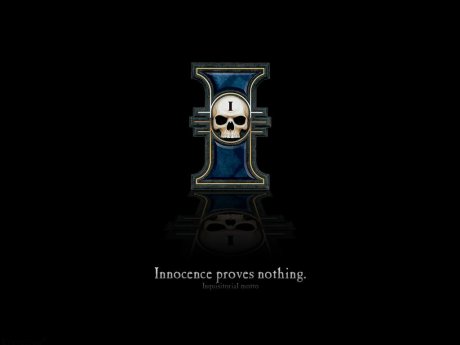First of all: welcome to the Dual Blogarchy.
Before I will get to my actual first post, I will briefly say a few things about this blog. For one, even though the design may give this impression, we are not monarchists. This blog will not (necessarily) attempt to push any political agenda. We simply chose this design because it is an awesome way of representing our respective cultures.
In this blog I will mainly write about two issues: economics and (inter)national security. Now, why did I choose to focus on these two topics especially? Well, for economics, the choice is obvious. I love the subject and it is relevant. As a matter of fact I can hardly think of anything more relevant. Economic policies, after all, are what determine the” wealth of nations”. The right economic policies can turn a barren, deserted place into an industrial hub while the wrong policies can transform a rich and pleasant land into an impoverished failed state. But national security is also important. The more you got, the harder it is to keep it. Despite the fact that many societies have attained huge wealth for their nations, they still aren’t safe. Quite on the contrary, the spectres of terrorism and war are constantly lurking in the darkness, awaiting the right moment to strike at our heart. The result is a paradox. On one hand our generation is richer and safer than any other generation before it. On the other hand, however, our generation also is permanently surrounded by threats, all of which, were they ever to materialize, could easily destroy all the progress mankind has made. From financial crises, over global warming, to genetically enhanced bioterrorism, we are surrounded by dangers which allow for no mistakes. It is in this context that (inter)national security should concern everyone.
Also, as you can see, it can get pretty long… But bear with me, it will be worth your time.
But now get to my actual first post. The topic today will be what is called “competitive intelligence”. This is an interesting place to begin because it is one of those things which exist on the overlap of economics and national security. “Competitive intelligence” is basically a legal form of industrial espionage, in which market participants, often supported by their respective governments, try to gain an informational advantage over each other. This takes various forms. Companies may attempt to gain information about plans of their competitors, they might attempt to defend their intellectual property in the context of an international market (or steal others intellectual property) or they may lobby decision makers to enact specific policies. In many cases the respective nation states housing these companies will aid them in their endeavours using diplomatic or intelligence assets. US companies, for example, have apparently in several instances gained from information garnered through the Echelon surveillance system, which monitors global communication networks.
So, three questions to answer:
– Why is competitive intelligence important?
– What are the main threats to European “intelligent competitiveness”?
– What can Europe do to become more “intelligent” and “competitive”?
Firstly, why is competitive intelligence important? The answer to this may seem obvious, or it may seem not, depending on where one is coming from. In very basic microeconomics, people often erroneously ignore the importance of information, since simple models operate under the assumption of perfect information, i.e. that every market participant knows everything he needs to know to make a rational decision. In reality such perfect information is almost never available and the market for information as a result takes a very pivotal role in the global economic system. Especially in our world of high powered- high speed finance, the right information transfer at the right moment can be absolutely crucial. The problem with information markets is that they, due to their special nature, can hardly be expected to function efficiently. They suffer from a somewhat paradoxical two-fold problem. On one hand information markets are too bounded. While technology has helped a lot in these areas, we still face many bottlenecks which prevent people from participating in mutually beneficial information transfers. Some of these bottlenecks certainly being societal, which is no surprise given that the market for information is highly embedded into the general social structure. On the other hand many information markets are too open. Like many other “virtual goods” (goods which can be recreated at almost zero marginal cost), some types of information are neither excludable nor rivalrous. With a few key strokes an important company email can be forwarded to millions of people. The result is that to prevent certain informational transfers, we often depend on government intervention. In order to deal with these issues government has proceeded to criminalize some forms of informational transfer (insider trading, for example) while trying to protect other types of information from getting into the wrong hands (one way being patents). “Competitive intelligence” in essence is an attempt to get the most out of information markets. Governments will try to aid their companies by helping them to gain information on their competitors or market developments, by defending their intellectual property and by promoting their brand overseas.
Going to Europe, what are the biggest threats to our “intelligent competitiveness”?
Intellectual property violations: Europe increasingly is relying on a high-tech economy. European companies can no longer compete based on quantity and prices in low-tech sectors, which is why the production of such goods has moved to other parts of the world with lower production costs. Instead Europe’s comparative advantage increasingly lies in the production of high quality goods and services. This is good because it garners high surplus values but it requires a technological advantage (and a corresponding stock of physical and human capital) in order to be sustainable. This technological advantage is increasingly coming under attack, not only through legitimate means (higher investment into research in other countries) but also through intellectual property violations. The most relevant example of this is still China, although apparently some progress has been made. But the continuing disrespect for European brand names and the limited defence of European companies’ rights in the local courts seems to be an on-going problem. If Europe loses its technological advantage, many sectors of its economy will suffer greatly as a result.
Cyber-security: The technological advantage can also be lost through direct theft. In our modern world, where sensitive information is increasingly stored in digital form, it has become relatively easy to steal data, if one knows how to do it. Hacker attacks on companies in Europe, America and Japan, have recently multiplied. Such attacks are not only protest actions carried out by Anonymous and similar groups but also seemingly are part of an organized theft of intellectual property. Although there is no discrete evidence for this, Ghostnet, which had infected embassies and companies worldwide, was most probably organized or at least supported by the government of the People’s Republic of China (the fact that the Tibetan government in exile was one of the targets underscores this). If our digital infrastructure is not hardened to resist such attacks, European companies will suffer.
So, what can be done? This is where it really gets interesting, because competitive intelligence gives some slightly different answers from the usual economic orthodoxy. The usual answer to a loss of competitiveness is either “more free trade” or “more protectionism”. Don’t get me wrong, both are valid approaches. But both are, well… not quite intelligent enough. Free trade only makes sense if people play by the rules. If everyone respects intellectual property rights and refrains from nefariously gaining information through the help of government assets, then free trade probably provides a socially efficient outcome. Protectionism is already somewhat more applicable. It aims to protect domestic industries either through import reduction (tariffs or quotas) or through subsidies. Both these measures can help but they can easily also do harm. Subsidies can easily promote the wrong industries (those which have more political than economic importance) and therefore just present a loss of society’s resources. Tariffs or quotas are equally hard to target at the right goods and usually their presence gives disincentives to local companies, which dissuade them from innovating since they are shielded from competition. Since innovation lies at the heart of a high-tech economy such blanket measures (what I would call the industrialisation orthodoxy) are not desirable.
Instead I would propose some other measures:
Closer cooperation of the private sector with a modernized intelligence service: I will start with this proposition since it’s probably the most controversial. The thing is that in Europe already the word intelligence agency already activates a panic reflex in many people. Intelligence gathering is still connected mainly to cold war fantasies of a spy-war or even worse to a Nazi style secret police. The only role we give our intelligence services is too maybe hunt a few terrorists, but that’s it. And in this we want to keep them not only as accountable as possible but also to isolate them as best as possible from the rest of the nation, including the private sector. The problem with that approach, however, is that it is simply outdated. Regarding the US there is evidence, including the already mentioned case where the company Raytheon profited from information gathered by Echelon, that the intelligence services are cooperating closely with key industries. And regarding China I believe there can be no doubt that the government is using all its assets to protect its economic interests. Europe will have to adapt in order to keep its technological edge. It will have to increase cooperation between intelligence (performed by civil, military and diplomatic agencies) and the private sector. It will further have to do this in a coordinated and united fashion. If Europe can pool its (unfortunately somewhat limited) intelligence resources in form of a European wide agency, it will be in a much better position internationally. This leads me to my second point.
A European-wide strategy to ensure cyber security and the protection of intellectual property: As already noted, European companies desperately need to protect their intellectual assets. Now, of course, we would all love to find a legal solution to this problem (or not, see SOPA) which would ensure that everyone respects private property rights and plays by the rules. However, for a myriad of reasons, this won’t happen. Therefore we need a more pro-active defence. This again will require intelligence cooperation, but the scale in this issue is much broader. Europe must come together in order to modernize the public and private sectors’ digital infrastructure, hardening it against any future attacks. Subsidies must be provided in a targeted fashion so that companies can more adequately protect themselves. Critical infrastructure (the electricity grid!) and key industries must be especially resilient. The European militaries must broaden their cyber-war capabilities in order to ensure that the source of attacks can be identified and that any such attacks can be met with retaliatory strikes. Furthermore Europe must stand united and use its assets aggressively to deter cyber-attacks or intellectual property violations in other countries.
A modern and targeted(!) education and research policy: In order to keep its technological edge, Europe must not only protect but also continuously expand it. This can only be done through a strong support for Human capital development (in other words education). However such measures must be targeted. I am sorry to say but there are certain fields which quite simply deserve way more support than other fields. Most emphasis must be placed on the so called STEM subjects (science, technology, engineering and mathematics). This must be united with policies which strongly encourage math, science and computer (!) education on the primary and secondary level. A society which is mathematically and technologically illiterate will not be able to compete in the modern world. Government must then further ensure that the graduates of these fields will find employment by providing large research grants to both the public and the private sector. All of this should, once again, happen in a coordinated fashion on the European level. Now, while this is probably one of my less controversial points, it will also be very expensive. And here we will have to make decisions. Do we want to hold on to our increasingly obsolete Bismarckian warfare-welfare state or can we move to becoming a modern innovation nation, as economist Alex Tabarrok refers to it? This is a difficult problematic, even in the US, which traditionally had less attachment to its welfare policies. The federal government spends a staggering 450 billion dollars on Medicare but only 32 billion dollars on the National institutes of health which fund health research. This seems nonsensical. More research means both better and possibly also cheaper treatments. Ways to, for example, diagnose cancer earlier or to treat it more efficiently would cut a huge chunk from the Medicare costs. But the gains from research are not immediately felt by voters and scientists lack the kind of lobbies available to other advocacy groups, so change in this direction will be hard to achieve. And things are looking even worse in Europe than in the US. In 2000 the EU planned to get every country to invest at least 3% of its GDP in research and development, as part of its Lisbon strategy. Only Finland and Sweden (4%) reached this goal. In the EU on average only 1.9% of GDP are spent on R+D. In Japan, to provide a comparison, it is 3.4%. This is ridiculous. But even worse, looking at for example the debates between the different candidates for the French presidency, no one really cares.
Two very informative videos (both in German though):
http://www.youtube.com/watch?v=J1ag0PHN4_8&feature=related
http://www.youtube.com/watch?v=5bNViw1bj-A&feature=relmfu
(Especially the discussion of Pokémon as a brand is epic)
And for an excellent article on innovation:
http://www.theatlantic.com/business/archive/2012/01/the-innovation-nation-vs-the-warfare-welfare-state/251984/
– AK






